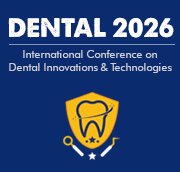Title : Psychological impact of COVID-19 among healthcare workers in Nepal: An analytical cross-sectional study
Abstract:
Introduction and Objectives: Many psychological problems including stress, anxiety, insomnia, depression, frustration, denial, anger, and fear emerged during the COVID-19 outbreak. This study was done to assess the prevalence and associated factors of depression, anxiety, stress, insomnia, and fear experienced by healthcare workers during COVID-19 in Nepal
Materials and Methods: This was a web-based analytical cross-sectional study conducted among healthcare workers from 27th December 2020 to 28th February 2021 all over Nepal. All the healthcare workers including doctors, nurses, and allied healthcare professionals from seven provinces were selected using the convenience sampling technique. Data collection was done using validated questionnaires. Univariate and binary logistic regression analyses were performed to find the association between the different variables. Statistical significance was set at p < 0.05.
Results: A total of 608 healthcare workers completed the survey with a mean age of 30.82±6.68. The majority were dentists (41.28%) followed by medical doctors (25%). About 18% were infected by COVID-19, 49% were working in lockdown as usual and 44% were working in government hospitals. About 27% had symptoms of depression, 28% anxiety, 10% stress, 18% insomnia, and 49.8% had fear of COVID-19. Resident doctors and health workers who had a bachelor’s level of education and working experience of fewer than two years were significantly associated with higher odds of experiencing depression and anxiety. Health workers working 2-5 years and more than five years’ experience had significantly lower odds of experiencing fear. History of tobacco use or medical condition had significantly higher odds of experiencing depression, anxiety, stress, insomnia, and fear.
Conclusion: This study concluded that the prevalence of depression, anxiety, insomnia, and fear was found to be high. Resident doctors, health workers with a bachelor’s level of education, working experience of fewer than two years, and a history of medical conditions were significantly associated with experiencing adverse mental health outcomes.
Audience Takes Away Notes:
- During pandemics like COVID-19, Health care workers have to suffer a lot in their mental health
- Healthcare workers themselves and the government and stakeholders of the hospital should be prepared to tackle mental health during the pandemic
- Junior doctors/health care workers should be properly trained and supported during the pandemic
- Stress-reducing programs should be conducted for the upliftment of mental health during the job



